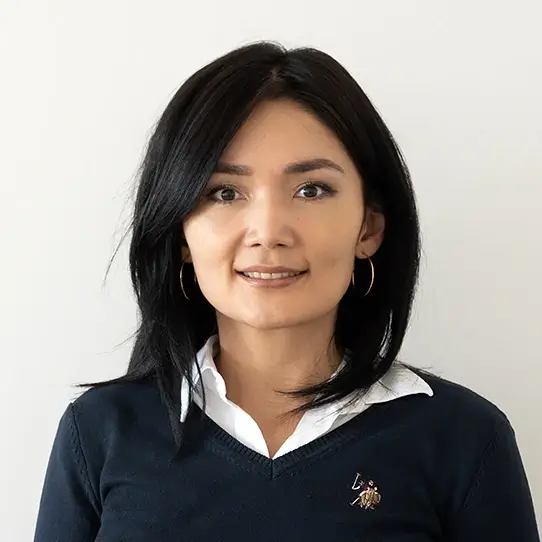This feeling of teamwork, the feeling that all these people are here for a good cause, and I am one of them, is very inspiring.
— How did you end up in the Angels of Freedom project?
— As soon as the war began, I got into the WhatsApp chat of the Headquarters for Humanitarian Support for Ukraine. There I saw a request that a volunteer for information service is required. I immediately responded, because I knew that I could help with this. I contacted the coordinators, they explained the task to me, and I created an Instagram account @help_ukraine_kz. It still works. Moreover, it has become such an “umbrella brand”, from which Angels of Freedom, a charity market and other projects have already spun off. We can say that I stood at the origins of the Humanitarian Support Headquarters for Ukraine.
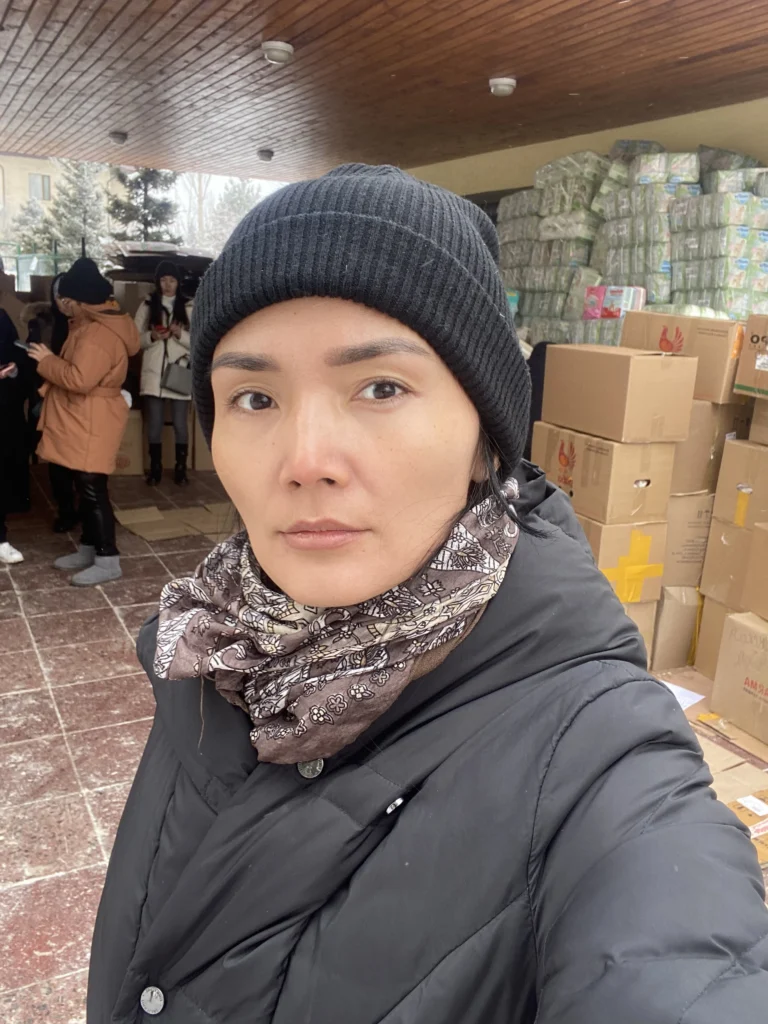
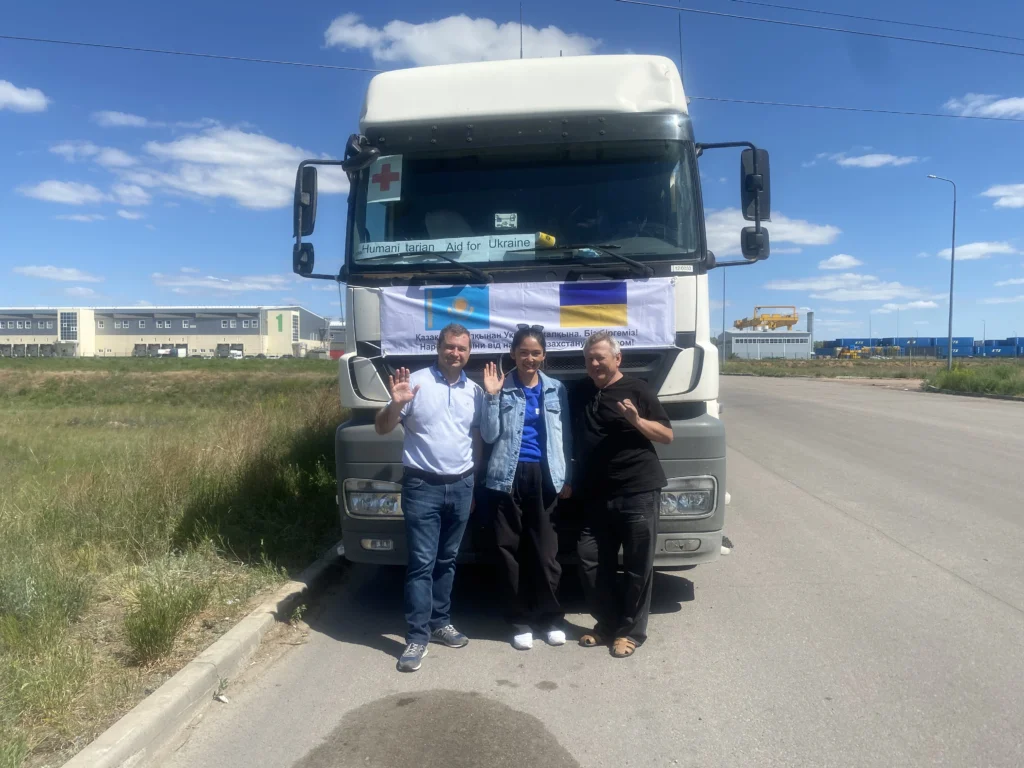
— So, you happened to be promoting the project in social networks?
— At the very beginning, at the Headquarters, I was engaged in SMM, but then I delegated this function and got involved in event management. Together with the Kazakh diaspora in Ukraine, we organized a charity concert in support of Ukraine. Kazakhs in Ukraine held charity dinners in the most affected areas — Bucha, Irpin. For example, with the help of the money we collected, they organized a charity dinner in Bucha, where they treated people to national Kazakh dishes — baursaks, plov. In addition, they brought humanitarian aid — food products with a long shelf life and hygiene products. We calculated that the average cost of their trip is 300 thousand tenge. And we held this concert in order to gather for one such trip. As a result, we went over the target and collected 600 thousand.
Because if we stop volunteering, it will mean that the war is over. So I know that I will go on.
— And who performed?
— Kazakh artists performed for free. Everything was organized by volunteers, and the artists themselves, one might say, were volunteers. The owners of the cafe provided us with a platform for free too, so everything was done on a voluntary basis.
— What was the reaction of the people for whom you held dinners?
— There were very warm words of gratitude. And in Kazakhstan there was a great response. By the way, we conducted a live broadcast with Ukraine, it turned out to be very emotional. They told how they, the Kazakhs living there, returned to their homes in the Kyiv region after the Russian troops retreated.
— Are you also organizing events now?
— No, the last event I organized was the Vyshyvanka Run for the Independence Day of Ukraine, which we held in last August. The main focus of the Angels of Freedom is done on tolokas. And run was most likely an exception to the rule, but the money collected from the participants also went to repair the bomb shelter of the Chernihiv school. Then, since I have a lot of my own work, I moved away from organizing events. I currently work as a volunteer as a project manager. My main task is to organize weekly meetings of the Angels of Freedom marketing team. We meet online every Sunday. I listen to what anyone has done, keep, as I call it, “follow up notes” — I write down what points we discussed, who is responsible for each item, and then I send a list of tasks to everyone for the next week in a chat.
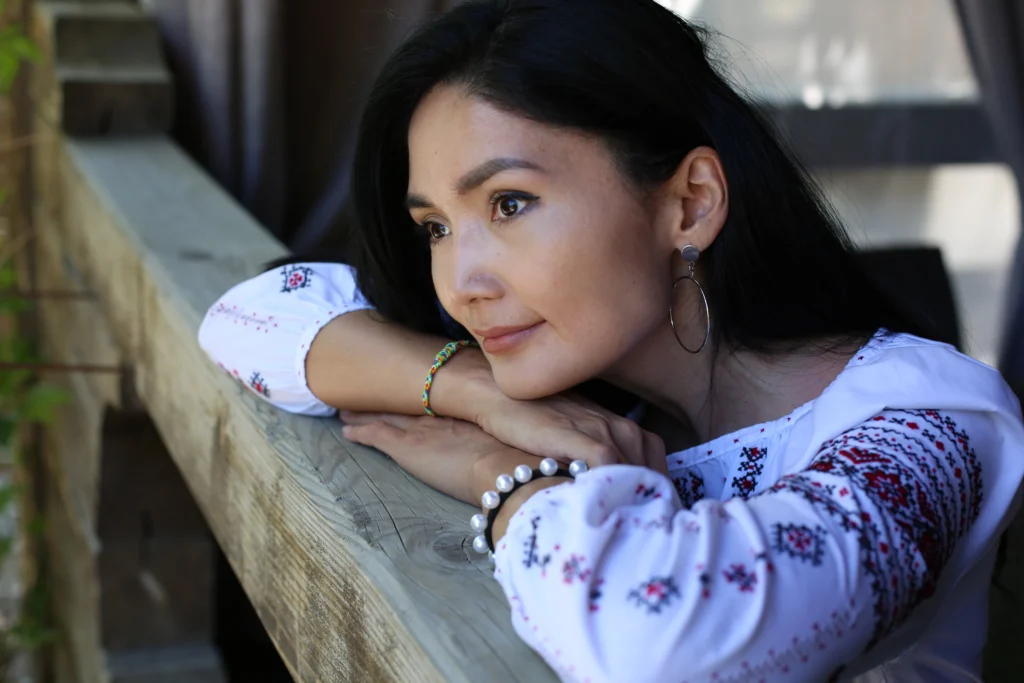
— Why did you want to participate in this project? When exactly did this desire to help arise?
— I remember well what a shock the attack on Ukraine on February 24 was for me. The fact is that my boyfriend is from Belgium, and he flew to Kazakhstan just a few days before. His mother was worried: “Maybe you shouldn’t go to Kazakhstan? The war will start — they say Russia will attack Ukraine.” And I remember her fears seemed far-fetched to me: “How? No, It is impossible!” Mom is probably winding up. And then he flew in, and this is really happening. There was a feeling of unreality of what was happening. I, and not only I, had an impulse to do something, to help somehow. I must say that here on February 24, all Kazakhstanis carried humanitarian aid, carried everything they could. At the Ukrainian Embassy then there was a real emergency, chaos. Therefore, volunteers were needed to organize all this. And I, apparently, had the same impulse as everyone else. This feeling of injustice — especially what happens to ordinary people who lived their own lives, and suddenly war comes to their homes — this injustice aroused a desire to support. It was very important for me to show the Ukrainians that they are not alone.
— It will soon be a year since the start of the war, and many have become accustomed to this reality, a decline in volunteer activity is naturally occurring. Do you observe this in Kazakhstan and do you feel tired of yourself?
— Yes, I feel tired. This is my first experience of volunteering and I learned a lot about volunteering. This can burn you out quickly. First, the topic itself is very complex. And at some point, I determined for myself how much time I can devote to volunteering (like this, to be honest) so that I don’t burn out and continue to work. Somehow I sat down, valued all my time, and realized that I could devote two hours a week to volunteering. And so, when I had a very specific number of hours, it became much easier. I understand that I helped, while not harming myself, that I did the maximum that I can at the moment. And that allows me to continue to help. And do not overstrain, help, and then lie exhausted and give up everything. I find it much more beneficial to help for a limited amount of time, but do it systematically over a long period.
— Are you somehow connected with Ukraine?
— No, I have no relatives or friends in Ukraine. I’ve only been there once, passing through.
— Have you thought about quitting volunteering?
— I told myself at the very beginning that we all want to stop this volunteering. Because if we stop volunteering, it will mean that the war is over. So I know that I will continue anyway. Maybe the intensity will decrease or increase. But I know that I will do what I do best.
— What was the most difficult and most enjoyable part of the project?
— The most difficult thing is to face burnout in others. You see that a person is inspired, he has so many ideas, and then he disappears, does not respond to messages, this, of course, upset the most. But at the same time, I understand that, firstly, everyone is volunteers and does everything voluntarily, and secondly, everyone has their own resources. And, accordingly, I cannot expect people to be perfect. And the most inspiring thing is to see the enthusiasm of people, especially after a well-executed project. For example, when we overfulfilled this fundraising plan for lunches. It was euphoric. Or the same Vyshyvanka Run, when we corresponded in the application, noted our results, congratulated each other. This feeling of teamwork, the feeling that all these people are here to do a good deed, and I am one of them, is very inspiring.
Despite the fatigue, the news, what kind of picture of the world they are trying to impose on us, the periodically arising thoughts that “everything is hopeless, desperately”, they — the Angels of Freedom — show that there is a meaning. And I hope that with the help of them we will instill this hope in other people.
— Do you have stories when something surprised or impressed you?
— I was impressed by the stories of people who moved to Kazakhstan against their will, from Ukraine, from Russia. It is difficult to single out any one story, they all merged into some kind of common “new” reality. It is impressive how ordinary people who, like me, lived, made plans for life, equipped their life where they lived, were forced to leave everything, completely change their lives and move to a country in which many of them even have never been.
— Has this year of volunteering changed you?
— Yes, I think I have changed. I made a lot of new acquaintances, even friends, I guess. Expands horizons, increases the level of sympathy, empathy. Empathy that I can transfer to my personal relationships. And the conclusion that I made for myself… that you don’t need to give up in any situation, you can always make a choice — to do at least something in the direction of the good. That is, not just sit down limply — “everything is so bad, there is no clearance” — but understand that at least with this action I can contribute to improving the situation. If this help in restoring schools supports the Ukrainians, the children who suffered from the bombings, in a difficult moment, it is not in vain, it means that something good has already happened.
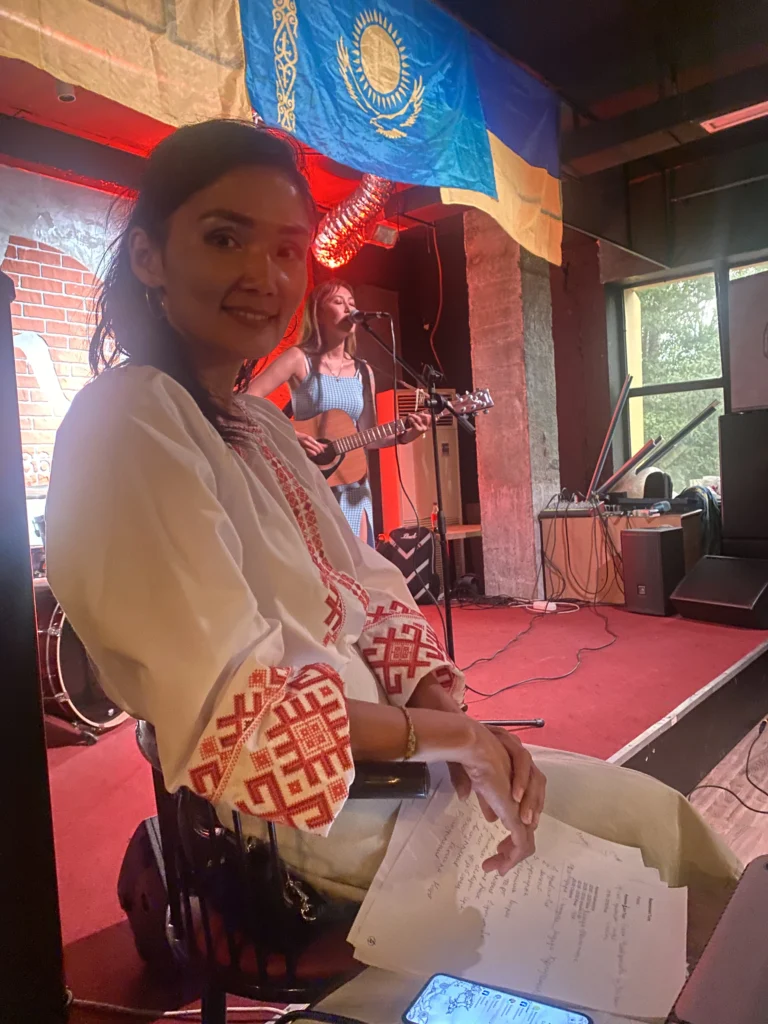
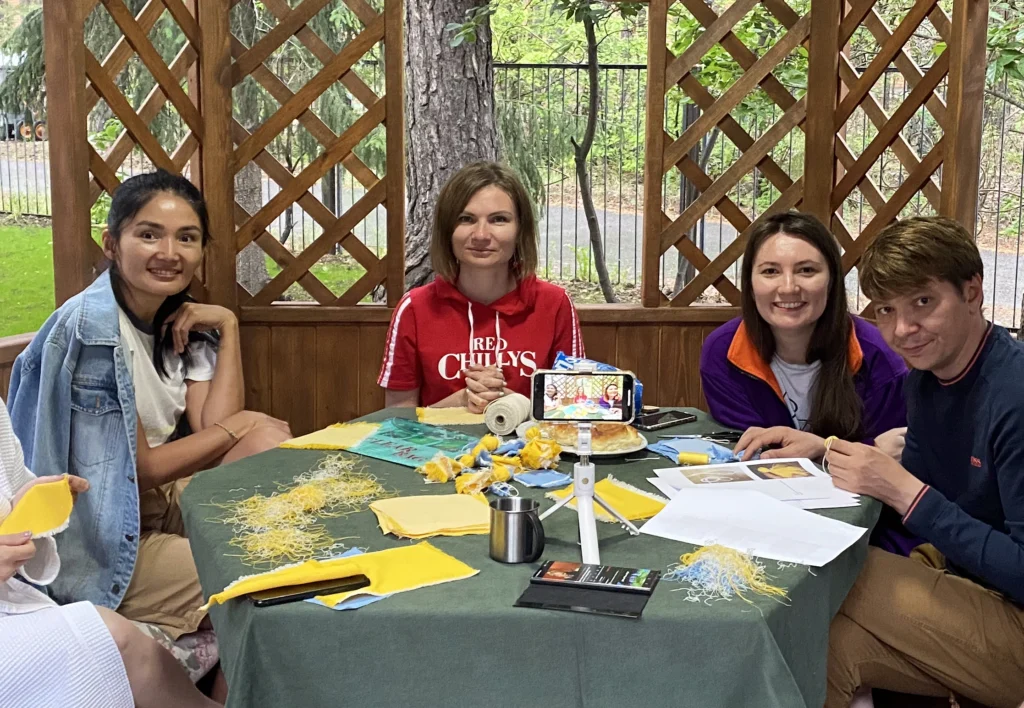
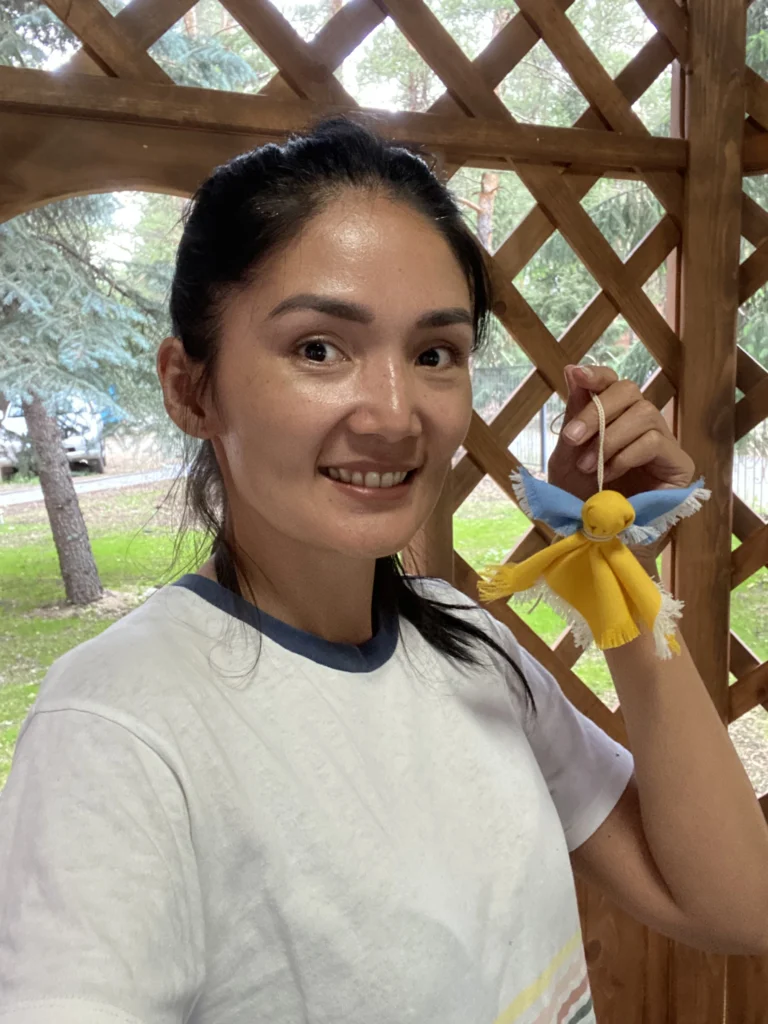
— Continue the phrase “The Angels of Freedom are…”
— For me, Angels of Freedom is a ray of hope that says that everything will be fine. Despite the fatigue, the news, what kind of picture of the world they are trying to impose on us, the periodically arising thoughts that “everything is hopeless, desperately”, they — the Angels of Freedom — show that there is a meaning. And I hope that with the help of them we will instill this hope in other people.
